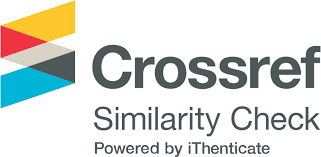The item (plow) between the lexical semantics and Contextual Connotations in the Holy Qur'ran
DOI:
https://doi.org/10.59743/jaf.v6i2.23Abstract
The objective of this study of the linguistic context is to reveal the value of the word and its significance within the systems. The meaning of the word is not restricted to its lexical context , as it is fixed and firm in the dictionaries, but the contextual significance is changed according to the text which displays the word. Therefore, this study depends on the search of the meaning of the words within the context in which they appear, and does not depend on the lexical meaning of it, as the word does not give an absolute connotation itself , even if it bears multiple lexical significance , what determines its significance precisely here is being displayed in a text , in a way that a specific meaning is perceived which may not be mixed with another meaning this word may refer. Linguists distinguish between the two meanings, while they attribute to the lexical meaning the name of the basic or figurative meaning, which explains what the lexical word gives from its meanings when it is singular, on the other hand they give the name of the additional or secondary meaning to the contextual meaning, it represents here an excessive meaning to the basic one and is being defined according to the context. Contextual significance is considered as the most significant modern theories in semantics, as it has been of great point of interest to ancient scholars, such as interpreters, linguists, rhetoric, critics and others, and it reached with them the summit which is the basic building block of modern contextual theory. Our scholars had defined the changing meanings of words within a context, and also explained the methods of authoring speech, systems and structures. Terms similar to the context term were scattered in their books, such as systems, structure, layout, article, formulation, and context.
Downloads
References
إرشاد العقل السليم إلى مزايا القرآن الكريم، محمد بن محمد العمادي أبو السعود، دار إحياء التراث العربي – بيروت.
-أعلام الفكر اللغوي التقليد الغربي في القرن العشرين، جون إي جوزيف، نايجل لف، توابت جي تولر، ترجمة: أحمد شاكر الكلابي،
-بحر العلوم، أبو الليث نصر بن محمد بن إبراهيم السمرقندي الفقيه الحنفي، دار الفكر – بيروت، تحقيق: د.محمود مطرجي.
-البحر المديد، أحمد بن محمد بن المهدي الفاسي أبو العباس، دار الكتب العلمية ـ بيروت، ط/2، 1423هـ.
-تاج العروس من جواهر القاموس، محمّد بن محمّد بن عبد الرزّاق الحسيني ، أبو الفيض ، الملقّب بمرتضى ، الزَّبيدي، تحقيق: مجموعة من المحققين، دار/الهداية.
-تفسير البحر المحيط، محمد بن يوسف الشهير بأبي حيان الأندلسي، تحقيق: عادل أحمد عبد الموجود، دار الكتب العلمية - لبنان/ بيروت، ط/1، - 2001 م.
-تفسير البيضاوي، البيضاوي، دار النشر : دار الفكر – بيروت.
-التفسير الوسيط للقرآن الكريم، د. محمد سيد طنطاوي.
-تفسير الفخر الرازى، محمد بن عمر بن الحسين الرازي الشافعي المعروف بالفخر الرازي، دار إحياء التراث العربى.
-الدر المنثور، عبد الرحمن بن الكمال جلال الدين السيوطي، دار الفكر/بيروت، 1993م.
-الدلالة السياقية عند اللغويين، عواطف كنوش المصطفى، دار السياب – لندن، ط/1 2007م.
-الجامع لأحكام القرآن، أبو عبد الله محمد بن أحمد بن أبي بكر بن فرح الأنصاري الخزرجي شمس الدين القرطبي، تح: هشام سمير البخاري، دار عالم الكتب، الرياض، 2003 م.
-علم الدلالة دراسة وتطبيقا، د. نور الهدى لوشن، منشورات جامعة قاريونس – بنغازي، ط/1، 1995م.
-الكشف والبيان، أبو إسحاق أحمد بن محمد بن إبراهيم الثعلبي النيسابوري، تحقيق: الإمام أبي محمد بن عاشور، دار إحياء التراث العربي، بيروت: لبنان، ط:1، 2002م.
-معجم مقاييس اللغة، أبو الحسين أحمد بن فارس بن زكريا، تحقيق: عبد السلام محمد هارون، دار الفكر، 1979م.
-لسان العرب، محمد بن مكرم بن منظور الأفريقي المصري، دار صادر – بيروت، ط/1.
Downloads
Published
License
Copyright (c) 2022 Journal of the Academic Forum

This work is licensed under a Creative Commons Attribution-NonCommercial-ShareAlike 4.0 International License.




